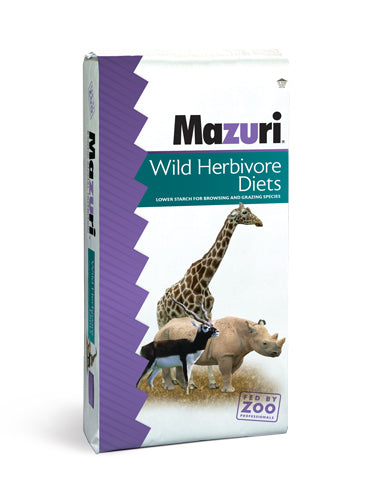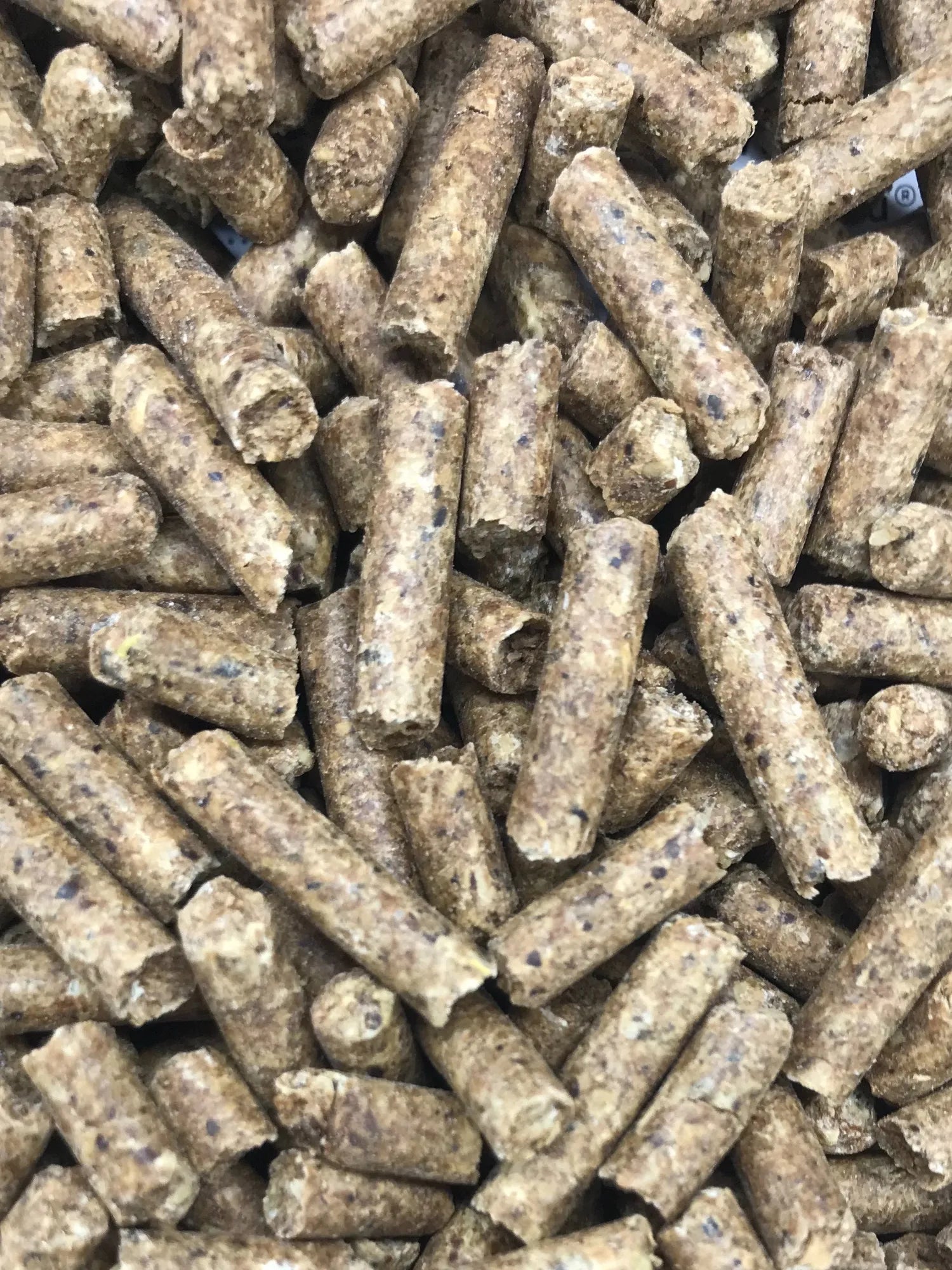Every exotic animal deserves the right nutrition
| Crude protein not less than Crude fat not less than Crude fiber not more than Ash not more than Calcium not less than Calcium not more than Phosphorus not less than Salt not less than Salt not more than Sodium not less than Sodium not more than Selenium not less than Selenium not more than |
13.0% 8.0% 22.0% 9.0% 0.75% 1.25% 0.50% 0.05% 0.55% 0.28% 0.78% 0.40 ppm 0.48 ppm |
Ground Soybean Hulls, Dehulled Soybean Meal, Dried Plain Beet Pulp, Cane Molasses, Oat Hulls, Soybean Oil, Ground Whole Aspen, Lignin Sulfonate, Dicalcium Phosphate, Ground Flaxseed, Yeast Culture, Sodium Sesquicarbonate, Salt, Calcium Propionate (a preservative), Magnesium Oxide, Calcium Carbonate, Artificial Flavors, DL-Alpha-Tocopherol Acetate (Vitamin E), Riboflavin Supplement, Sucrose, Choline Chloride, Preserved with Mixed Tocopherols, Vitamin D3 Supplement, Manganous Oxide, Rosemary Extract, Calcium Pantothenate, Zinc Oxide, Vitamin A Supplement, Ferrous Carbonate, Citric Acid (a Preservative), Thiamine Mononitrate, Copper Sulfate, Nicotinic Acid, Vitamin B12 Supplement, d-Alpha Tocopheryl Acetate (Vitamin E), Zinc Sulfate, Calcium Iodate, Sodium Selenite, Cobalt Carbonate.
- Feed ad libitum or intake may be limited when free-choice hay or grass pasture is made available.
- Expected intake should be 33 to 50% of the diet, as fed. Offer hay and/or browse at a level to provide the remainder of the diet.
- Animals generally should be fed 1 – 3% of body weight per day, although the amount of diet the animal requires will vary according to its species, age, size, life stage, health status, and activity of the animal and the environmental temperature.
- Always provide plenty of fresh, clean water.
- Thoroughly wash feed and water bowls on a regular basis. It is always good practice to wash hands thoroughly after feeding and/or handling animals.
- This diet is not for human consumption.
Contains more than 15 ppm copper – If using for sheep species, ensure to balance the complete diet for total copper intake.
Caution: Follow label directions: Feeding added selenium at levels in excess of 0.3 ppm in total diet is prohibited.
Storage Conditions
For best results, reseal the bag between uses or store contents of open paper sack in container with sealing lid. Store in a cool (75°F/24°C or colder), dry (approximately 50% RH) location free from rodents and insects. Do not offer moldy or insect-infested feed to animals as it may result in illness, performance loss or death. Freezing will not harm the diet and may extend freshness. Use within 1 year of bag manufacturing or "Best if Used By" date.
Ask Our Experts
Get nutrition advice you can trust from experts who understand the unique nutritional needs and behaviors of your exotic animals.
Get Advice
